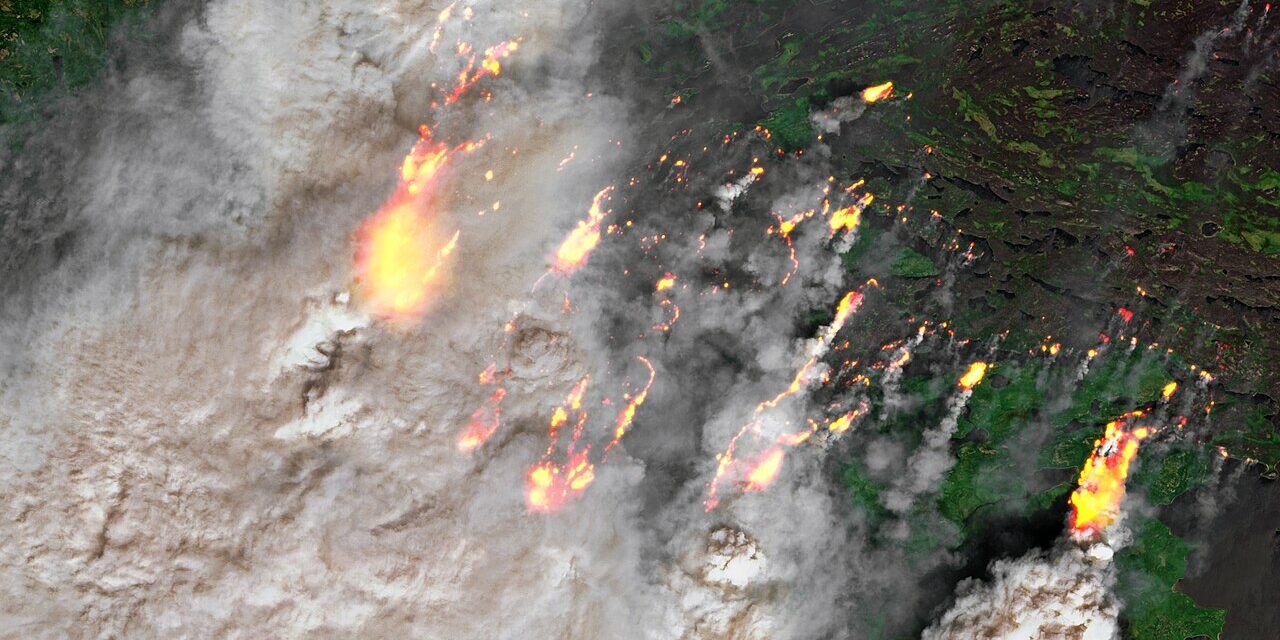Climate change shouldn’t be political. The evidence is there for all to see, and people everywhere are feeling the effects. Government leaders from every nation and ideology have signed agreements to address the crisis, and reputable organizations from the International Energy Agency to the World Bank have analyzed the necessity and benefits of acting quickly.
Why, then, do so many politicians and governments act as if they represent the coal, oil and gas industries rather than the people who elected them?
Are they in denial? Are they simply ignorant? Do they care more about short-term profits and political prospects than human health, wellbeing and survival? Some actually cite biblical prophecy about the “end times” as an excuse to ignore the emergency.
It’s no wonder so many young people are anxious, scared and uncertain about their futures. Most can see where we’re headed if we don’t pick up the pace of real climate action. And political leaders are failing them — failing us all.
We see it here in Canada, where some provincial leaders reject every climate solution — from carbon pricing to wind energy — and continue to promote polluting, climate-altering fuels that everyone who has studied the issue says must be left in the ground. They put the brakes on the rapidly growing, profitable, job-creating renewable energy industry. They parrot the fossil fuel industry in promoting “natural” (fossil) gas and expensive, largely unproven technologies such as carbon capture and storage (which is little more than a lifeline for a dying industry) as climate solutions.
Astoundingly, some political figures outright deny that we have a problem. Former Australian Prime Minister Tony Abbott recently called climate science “ahistorical and utterly implausible,” repeating easily debunked disinformation.
In the US and elsewhere, you can often gauge a politician’s stance on climate science by how much money they get from fossil fuel interests, with some even owning stakes in companies.
That anyone could witness or directly experience the increasingly frequent and intense heat domes, droughts, floods and record high temperatures and claim we don’t have a problem is insanity! Most have no knowledge or background in science and couldn’t tell you the difference between a scientific fact, hypothesis, theory and law even if those were clearly explained.
These people are delaying critical climate action and jeopardizing all life. Even politicians who understand and care about the climate emergency often compromise and water down policies to appease voters and ensure their success in the next election.
But every molecule of carbon dioxide we emit into the atmosphere remains for hundreds of years, which means even if we immediately stopped burning all gas, coal and oil, and destroying carbon sinks like forests and wetlands, global average temperature would continue to rise.
As George Monbiot recently wrote, “What we are living through today, unless sudden and drastic action is taken by us and our governments, is the sixth great Earth systems collapse.” Although these catastrophic events are usually referred to as “mass extinctions,” Monbiot argues extinction is a symptom of systems collapse.
We’re now reaching tipping points, at which vanishing Arctic sea ice, caused by global heating, will trigger even greater heating as reflective ice is overtaken by darker, sunlight-absorbing water and land — as well as more extreme weather events as the northern atmospheric jet stream weakens.
Rapidly melting Antarctic sea ice “could lead to the cascading collapse of the freshwater ice shelves perched above the sea ice, with catastrophic results for rises in global sea levels.” Deforestation in critical areas like the Amazon could seriously affect precipitation patterns, flipping it from rainforest to savannah.
We’re also seeing massive declines in plant and animal species, with more facing extinction every day.
As the International Energy Agency’s World Energy Outlook 2023 illustrates, we’re making progress, but we’re quickly running out of time. We all need to do everything we can to make sure those with decision-making power — from politicians to industry leaders — understand this crisis and take it seriously.
We need to speak up, write letters, sign petitions, march in the streets and vote only for those who recognize the need to shift to a world with cleaner air, water and soil, better jobs and economic opportunities and a stable climate.
Let’s not waste precious time on denial.
David Suzuki is a scientist, broadcaster, author and co-founder of the David Suzuki Foundation. Written with David Suzuki Foundation Senior Writer and Editor Ian Hanington.
Learn more at davidsuzuki.org.


